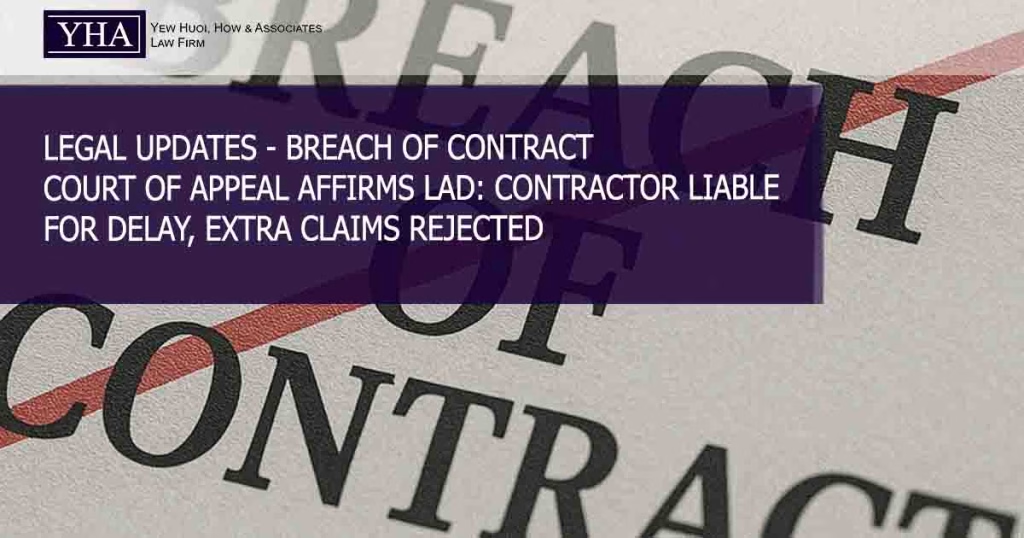1. Summary and Facts
In Savelite Engineering Sdn Bhd v Askey Media Technology Sdn Bhd and another appeal [2025] MLJU 2258, Askey Media engaged Savelite to construct a factory in Penang for RM8.6 million, with a completion date of 4 September 2016 and liquidated and ascertained damages (“LAD”) fixed at RM3,300 per day. Practical completion was only certified on 15 September 2017 – a delay of 376 days. The Superintending Officer (“SO”) granted an extension of time (“EOT”) of 143 days, leaving Savelite liable for 233 days of LAD amounting to RM768,900.
Askey Media also claimed loss of rental profits and indemnity payments to its tenant arising from the delay. The High Court allowed the LAD but dismissed the additional claims. Both parties appealed.
2. Legal Issues
• Whether the defendant was estopped from denying that time was of the essence, having accepted the Certificate of Non-Completion (“CNC”) and submitted multiple EOT applications.
• Whether the Plaintiff or Defendant was responsible for the delay.
• Whether time was the essence of the contract.
• Whether the quantum of damages was proportionate and reasonable.
3. Court’s Findings
• The court dismissed both appeals from the plaintiff and defendant.
• The delay was attributable to the Defendant, as time was of the essence in the contract, and the slow progress of works resulted in the delay.
• The Court varied the High Court’s order by imposing 5% interest per annum on the liquidated damages award, effective from 26.1.2017 until full settlement, pursuant to its discretion, as provided for under the contract.
• Equitable estoppel did not apply as the contract expressly stipulated that time was of the essence, and the completion deadline was clear.
4. Practical Implications
This decision affirms several important legal principles governing the contract including:
• The liquidated damages clauses are generally enforceable, provided they are genuine pre-estimate of loss and not a penalty.
• The burden lies upon the contractor to establish that a delay is excusable, as failure to do so renders the contractor liable for liquidated damages.
• The contract must be properly drafted for liquidated damages clauses as it will put the developers or employers a strong legal protection in the event of delay.

